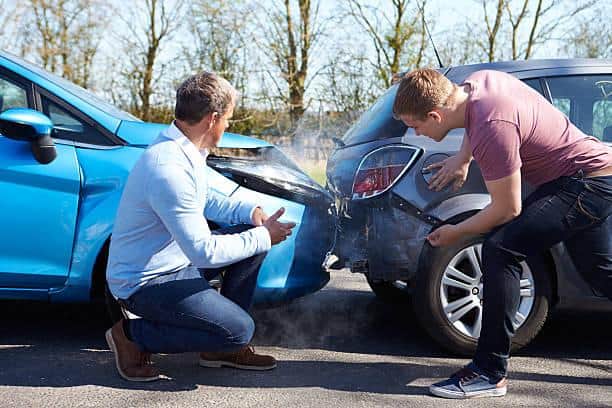
Even if you did not suffer any apparent physical injuries after a car crash, you may still have a valid legal claim. Many people experience delayed symptoms, emotional distress, or property damage that are compensable under Georgia law. It’s essential to understand your rights and take the necessary steps, even if you feel fine initially.
Peachtree Corners, a fast-growing suburb known for its tech innovation and bustling roadways, sees its share of car accidents, many of which involve hidden or delayed injuries. The car accident cases here are governed by Georgia’s fault-based system. This means the driver who caused the crash is responsible for paying damages, including medical expenses, lost wages, pain and suffering, and property repairs. Even without visible injuries, you can pursue a claim for non-physical damages or delayed medical issues.
Speaking with a proven Peachtree Corners car accident lawyer can help you determine if you have a case. They can assess your situation, guide you through the claims process, and ensure you don’t miss out on compensation you may deserve.
Read on to learn why it’s crucial to act after a crash, even if you don’t feel hurt right away, and what steps you should take next.
Why You Should Not Ignore a Car Accident Without Injuries
Many people assume that if they walk away from a car accident without cuts, bruises, or broken bones, they don’t need to take any further action. Unfortunately, this is not always true. Some injuries, like whiplash, concussions, or internal trauma, can take hours or even days to show symptoms. Emotional and psychological effects, such as anxiety or post-traumatic stress disorder (PTSD), are also common after crashes.
Under Georgia law, you are entitled to seek compensation not just for visible injuries, but also for medical conditions that emerge later and for non-economic damages like mental anguish. (See O.C.G.A. § 51-1-6, which allows recovery of damages for injuries caused by another’s negligence.)
What Damages Can You Recover Without Physical Injuries?
Even without obvious bodily harm, you may still be eligible for damages if the other driver was at fault. Examples include:
- Property damage — repair or replacement costs for your car or other belongings.
- Medical expenses for delayed injuries — diagnostic tests, therapy, or treatment for conditions discovered after the accident.
- Lost wages — if the crash caused emotional distress or pain that kept you from working.
- Pain and suffering — mental and emotional harm, inconvenience, or loss of enjoyment of life.
Georgia law recognizes both economic and non-economic damages in personal injury cases. Documenting your experience and seeking medical evaluation as soon as possible is critical to preserving your claim.
Common Delayed-Onset Injuries After a Car Accident
It’s not uncommon for accident victims to feel fine immediately after a crash, only to experience symptoms later. Some of the most common delayed-onset injuries include:
- Whiplash and soft tissue injuries — neck stiffness, back pain, and reduced range of motion.
- Concussions or traumatic brain injury (TBI) — headaches, dizziness, confusion, memory problems.
- Emotional trauma — anxiety, depression, or PTSD symptoms such as flashbacks or difficulty sleeping.
- Internal injuries — organ damage or internal bleeding, which can be life-threatening if untreated.
If you begin to experience symptoms after the accident, consult a medical professional immediately. Timely documentation of your condition strengthens your case and links your injuries to the crash.
Legal Requirements After a Peachtree Corners Car Accident
Even if you feel uninjured, Georgia law requires specific actions after any motor vehicle accident. Under O.C.G.A. § 40-6-273, drivers involved in a crash resulting in injury, death, or property damage over $500 must report the accident to local law enforcement immediately.
You should also exchange information with the other driver, gather witness statements, and take photographs of the scene and your vehicle. Filing a police report and notifying your insurance company promptly helps protect your legal rights.
Why Medical Attention Is Still Important
Seeking medical attention soon after a crash, even if you don’t think you’re hurt, is one of the smartest steps you can take. A medical evaluation may uncover injuries you didn’t notice at first. It also creates a formal record of your condition, which can serve as evidence if you later pursue a claim.
Keep copies of all medical records, bills, and receipts for your records. Follow any treatment plans recommended by your healthcare provider, as failing to do so may harm your case.
Tips for Protecting Your Rights After a Car Crash
To safeguard your legal options, consider these critical steps:
- Report the accident to the police and request a copy of the report.
- Seek medical attention and document your injuries and symptoms.
- Take photos of the vehicles, the scene, and any visible damage.
- Keep a journal of how you feel in the days and weeks after the crash.
- Notify your insurance company and provide necessary information.
Final Thoughts
Not all injuries from a car accident in Peachtree Corners are immediate or visible. Under Georgia law, you may still have the right to recover damages for delayed injuries, emotional distress, and property loss. By acting promptly and documenting everything, you help protect your health and your ability to claim compensation.